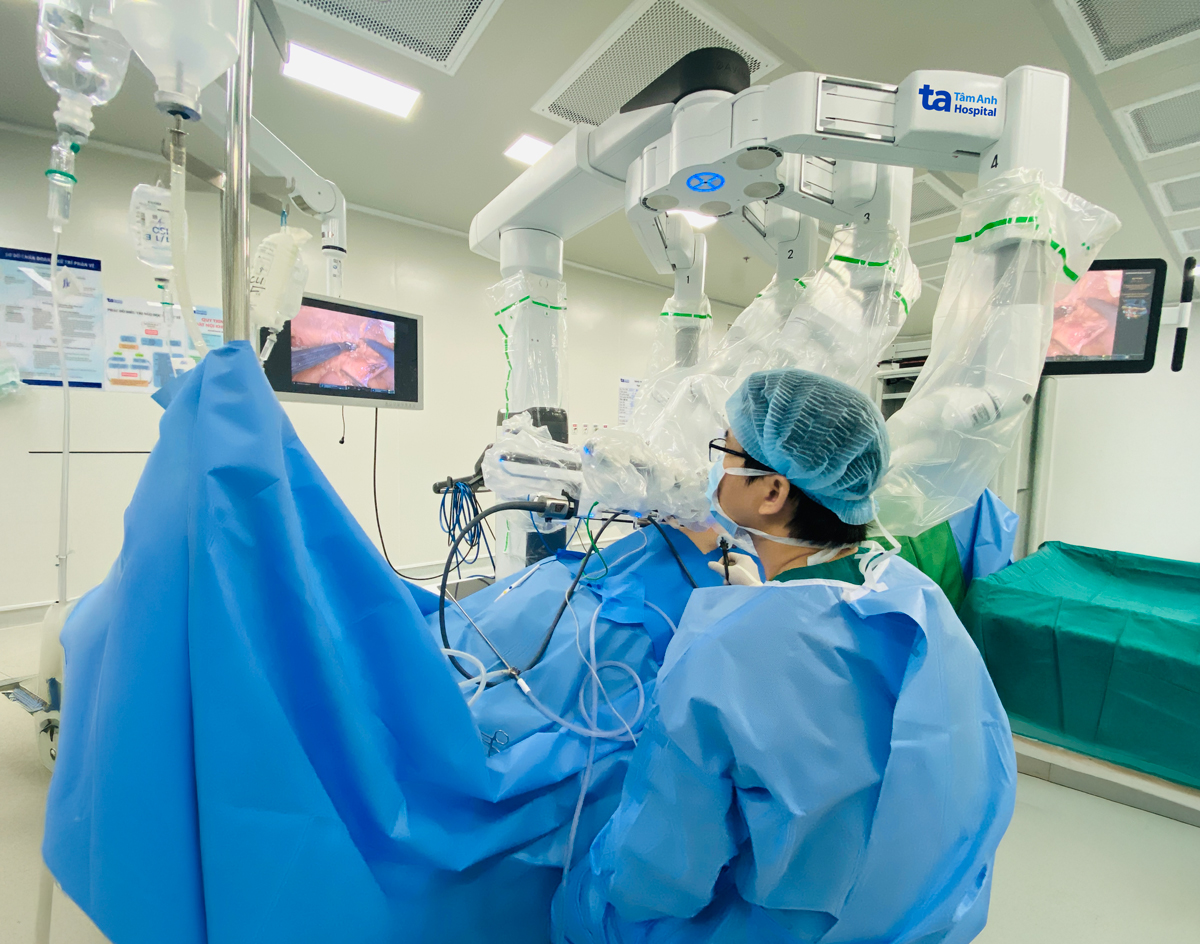Bunna Sok, a Cambodian national, underwent tests at Tam Anh General Hospital in Ho Chi Minh City that revealed his prostate-specific antigen (PSA) levels were 18 ng/mL, 5 times the normal range (2.5-4 ng/mL). A biopsy of 12 prostate tissue samples was performed, and one sample was found to contain cancerous cells.
Associate Professor, Doctor Vu Le Chuyen, Director of the Center for Urology, Nephrology, and Andrology, determined that the cancer was localized within the prostate. He recommended a radical prostatectomy using the Da Vinci Xi robotic surgical system.
Professor Chuyen and his team used the Da Vinci Xi robot to remove the entire prostate, seminal vesicles, and lymph nodes on both sides. They then sutured the urethra to the bladder neck. After nearly 3 hours, all cancerous cells were removed.
Bunna Sok recovered quickly, walking and resuming normal activities within 24 hours. He was discharged 4 days later. Doctors advised him to have follow-up checkups every 3 months for the first year to monitor for recurrence.
 |
Doctors performed a prostatectomy on Bunna Sok to eliminate the cancer. Photo: Tam Anh General Hospital |
Doctors performed a prostatectomy on Bunna Sok to eliminate the cancer. Photo: Tam Anh General Hospital
Doctor Nguyen Tan Cuong, Deputy Head of the Urology Department at the Center for Urology, Nephrology, and Andrology, explained that prostate cancer is common in men, mostly over 65. Symptoms can include urinary problems such as blood in the urine, difficulty urinating, and frequent nighttime urination, affecting sleep. The risk increases with age, along with family history, race, and exposure to hazardous chemicals. Men over 50 (or under 45 with a family history) should undergo prostate cancer screening. Early detection allows for effective treatment, enabling patients to live healthy lives.
"Currently, Da Vinci Xi robotic prostatectomy is the most effective treatment in the early stages," said Dr. Cuong. Compared to open surgery or traditional laparoscopy, robotic surgery optimizes the removal of malignant tumors, reduces complications, and allows for faster recovery, preserving urinary and sexual function.
Ha Thanh
*The patient's name has been changed.
| Readers can submit questions about urological diseases here for doctors to answer. |












